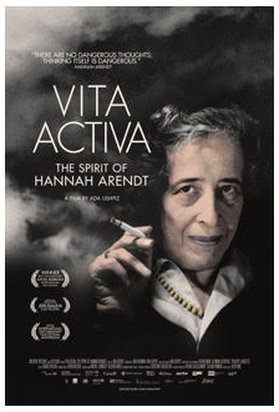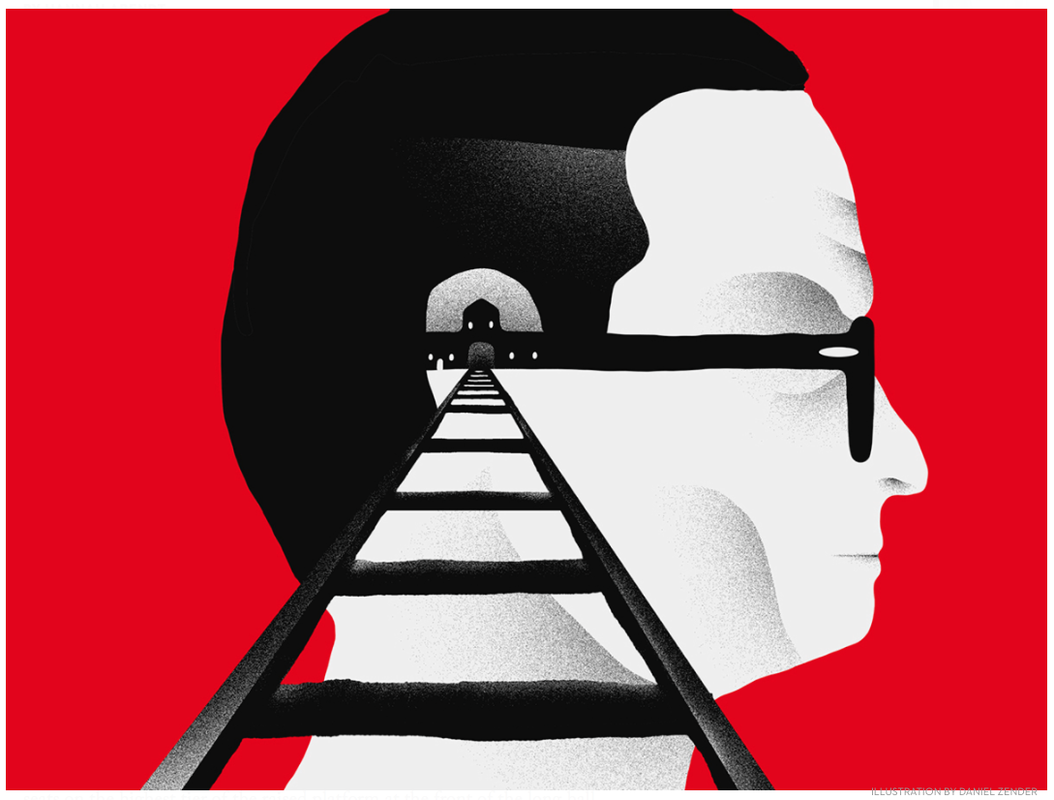|
Ada Ushpiz directed award-winning Vita Activa: The Spirit of Hannah Arendt How many magazine articles written over 50 years ago are still the subject of vigorous intellectual debate? There's at least one [and only one?], the 1963 New Yorker series written by Hannah Arendt, titled Eichmann in Jerusalem, in which Arendt famously coined the term "the banality of evil." Arendt's life and thought -- and the controversy over her Eichmann essay -- are the subject of the new documentary Vita Activa: The Spirit of Hannah Arendt, directed by Israeli filmmaker Ada Ushpiz. Vita Activa opens in New York April 6th [Film Forum] and in Los Angeles on April 29 [Laemmle Monica Film Center]. It won Best Documentary at the Santa Barbara Film Festival and was an official selection at the Jerusalem, and Munich film festivals, as well as IDFA [International Documentary Film Festival Amsterdam]. Arendt's take on Eichmann, based on covering his capital trial in Jerusalem, remains controversial because to some it seemed almost to absolve the Nazi official of guilt for his central role in the Holocaust, because she believed he acted not so much out of malice but from a kind of unthinking bureaucratic mindset. Recent scholarship has questioned whether Arendt was taken in by Eichmann's desultory testimony, in which he made a pretense of being an SS functionary with no responsibility for the orders he carried out [his last words from the gallows were, "I had to obey the rules of war and of my flag!"]. Arendt, a German-born Jew, had fled the Nazis twice -- first to France and later to the United States, where she eventually became a citizen. Many Jews denounced her after the publication of her Eichmann article.
"Her private life was no less controversial thanks to her early love affair with the renowned German philosopher and Nazi supporter Martin Heidegger," according to a press release describing the Ushpiz film. "This thought provoking and spirited documentary, with its abundance of archival materials, offers an intimate portrait of the whole of Arendt's life, traveling to places where she lived, worked, loved, and was betrayed, as she wrote about the open wounds of modern times." |
AuthorMatthew Carey is a documentary filmmaker and journalist. His work has appeared on Deadline.com, CNN, CNN.com, TheWrap.com, NBCNews.com and in Documentary magazine. |
- Home
- News
- Videos
-
Galleries
- 2019 Tribeca Film Festival
- Full Frame Documentary Film Festival
- 2019 SXSW Film Festival
- SXSW 2018 Gallery
- 2019 Sundance Film Festival
- Outfest 2018 Photo Gallery
- Outfest 2017
- Sundance 2018 Photos
- 2017 LA Film Festival
- 2017 Cannes Film Festival
- Tribeca Film Festival 2017
- SXSW 2017 Gallery
- 2017 Berlin Film Festival
- Sundance 2017 Gallery
- 2016 Los Angeles Film Festival
- Cannes Film Festival 2016
- SXSW 2016 Gallery
- Berlinale 2016 Gallery
- Sundance 2016 Gallery
- Filmmaker Gallery
- About
- Contact
Proudly powered by Weebly
- Home
- News
- Videos
-
Galleries
- 2019 Tribeca Film Festival
- Full Frame Documentary Film Festival
- 2019 SXSW Film Festival
- SXSW 2018 Gallery
- 2019 Sundance Film Festival
- Outfest 2018 Photo Gallery
- Outfest 2017
- Sundance 2018 Photos
- 2017 LA Film Festival
- 2017 Cannes Film Festival
- Tribeca Film Festival 2017
- SXSW 2017 Gallery
- 2017 Berlin Film Festival
- Sundance 2017 Gallery
- 2016 Los Angeles Film Festival
- Cannes Film Festival 2016
- SXSW 2016 Gallery
- Berlinale 2016 Gallery
- Sundance 2016 Gallery
- Filmmaker Gallery
- About
- Contact



 RSS Feed
RSS Feed